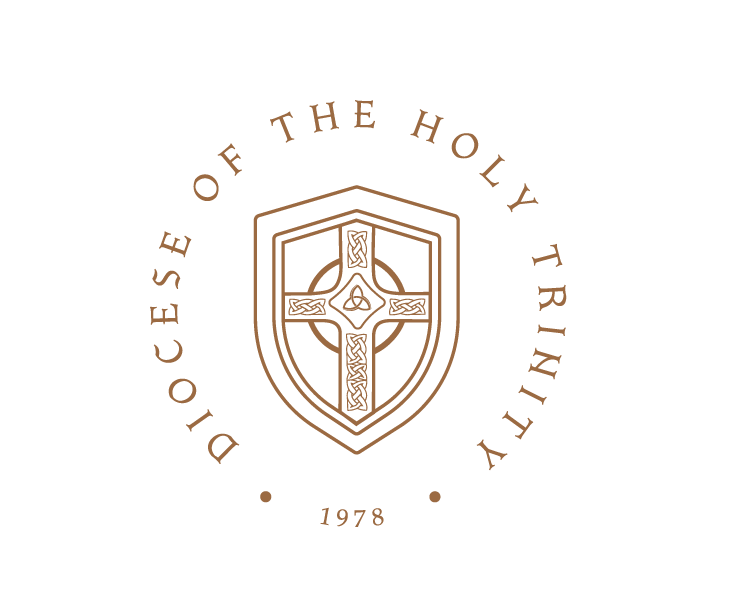Bishop’s blog archives
The Christian Hope of the Resurrection
Most Christians do not understand the hope of resurrection. If you ask typical Christians what they hope for, they will say that they hope to go to heaven when they die. Heaven is a place of rest, comfort, and anticipation, but it is not a final state.
Becoming a Missionary Diocese
Our call to mission combines the pursuit of holiness through a life of prayer in community, and heart for the wounded and the lost that desires to share what we have with others. However, a reorientation around the pursuit of holiness leading to mission does not happen by osmosis, but must be a purposeful and persevering effort to reorient the church around interior formation and outward mission.
Seek first the kingdom of God
In Matthew 6:24-34, Jesus is not saying, “You might want to consider a little bit of the kingdom in your life.” “Seek first the kingdom of God” is a command from the Lord of the universe. He is telling us how to live. He contrasts two ways of life: Seeking first the kingdom on the one hand, and serving mammon on the other.
A life of humility
The lessons and St. Paul’s life provide some reflections on the sin of pride and the corresponding virtue of humility. Pride and humility are often misunderstood. The chief errors are to mistake justifiable confidence for pride, and to associate humility with a lack of self-worth or self-esteem.
We develop humility when we stop looking at others and start looking at God; specifically, when we start looking at Jesus.
God’s Justice vs. Fleshly Lusts that War Against the Soul
Being upset with injustice is not wrong, nor is it wrong for each of us to have political opinions about the best way to work for more justice in the world. The problem arises when a desire for some form of justice in this world becomes the ultimate thing for a follower of Jesus Christ. Faith comes to be seen as tool to be used in service to some temporal idea of justice. The kingdom of God serves the temporal order. This kind of fleshly lust wars against the soul because the soul longs for God’s kingdom, not just the political victory of one side in this world.
On Liturgy: Translation and Revision
I have previously addressed changes to the Anglican liturgy that have taken place in the last fifty plus years. These changes have been two-fold. First, revising the liturgy to make it more palatable to modern theology and sentiment. Second, developing liturgical options that suit different tastes.
There is a distinction between revision and translation. To translate is to render a word or concept in another language or idiom with the intention of retaining the same meaning. To revise is to change the meaning. These two issues were often confused in liturgical revision. It was argued that older words needed to be translated into modern language so people could understand them. However, this was merely cover for revision—a change in meaning.
Spiritual Growth: Reflections on the Parable of the Sower
Easter is not merely a future feast day. Easter is a new experience of resurrection that we enter into through a new experience of the cross. Our cross is the horticultural work we embrace in Lent.
We can consider over the coming days what is needed for the seed of God’s work to become more deeply rooted in our hearts. Lent will give us an opportunity for extended horticultural work towards the goal of long term growth. As Jesus said in conclusion to our parable, “The ones that fell on the good ground are those who, having heard the word with a noble and good heart, keep it and bear fruit with patience.”
On Liturgy: Liturgy and Experience
Our experience of liturgy is important. Here we encounter the tension between objective truth/reality and subjective emotion/experience. Some Christians focus on objective truth and discount the emotional experience of the truth. The therapeutic orientation of our culture tends to focus on our feelings at the expense of the truth.
On Liturgy: The 1928 Book of Common Prayer
The liturgy of Continuing Anglicans in America is rooted in the 1928 Book of Common Prayer (BCP).
The 1928 BCP is important because it is the last American Book of “Common” Prayer. Common prayer is more than a liturgy a congregation says together. Common prayer is the common liturgy of the church that expresses the church’s common faith.
Creating Evangelism Today
We have entered into a new world and we have to approach evangelism in a new way … And how do we create evangelism in that world?
The missionary orientation we realize now consists of a couple of things. Inwardly, it consists of a community committed to its life of prayer for its own formation, its own prayer and its own growth in the fruits of the spirit in its own midst. Unless you have a life of prayer … you have nothing to offer anybody who’s coming.
And then secondarily with that is a genuine love of souls. That is, we really would like to minister to people who aren’t us and — as natural as that sounds—that heart for those who are not us is not present everywhere.
Reflections on Being Pro-Life
We are very happy to welcome Dr. Geeta and the Living Well Medical Clinic to St. Matthew’s Church. Our recent connection renews an old relationship. Back in the 1990’s several St. Matthew’s families volunteered there, and we donated money and items on a regular basis. Dr. Geeta and I have one significant thing in common. We’ve both stayed in one place for a long time. I think she has me beat by a year. She founded Living Well in 1985 and I came to St. Matthew’s Church in 1986.










